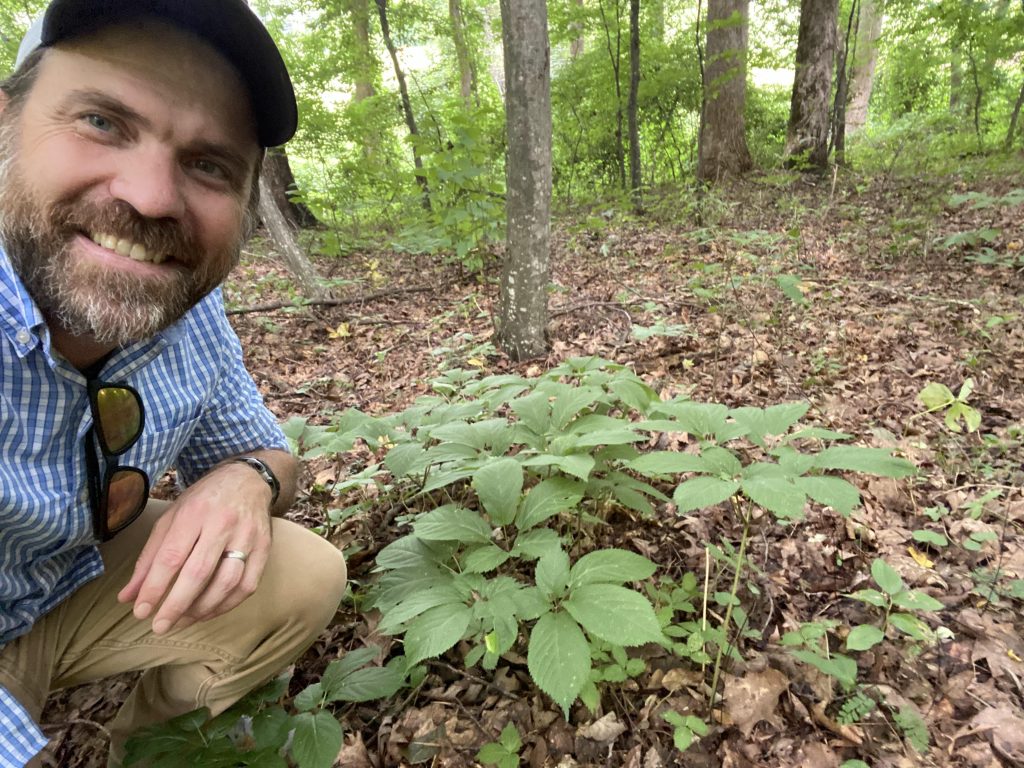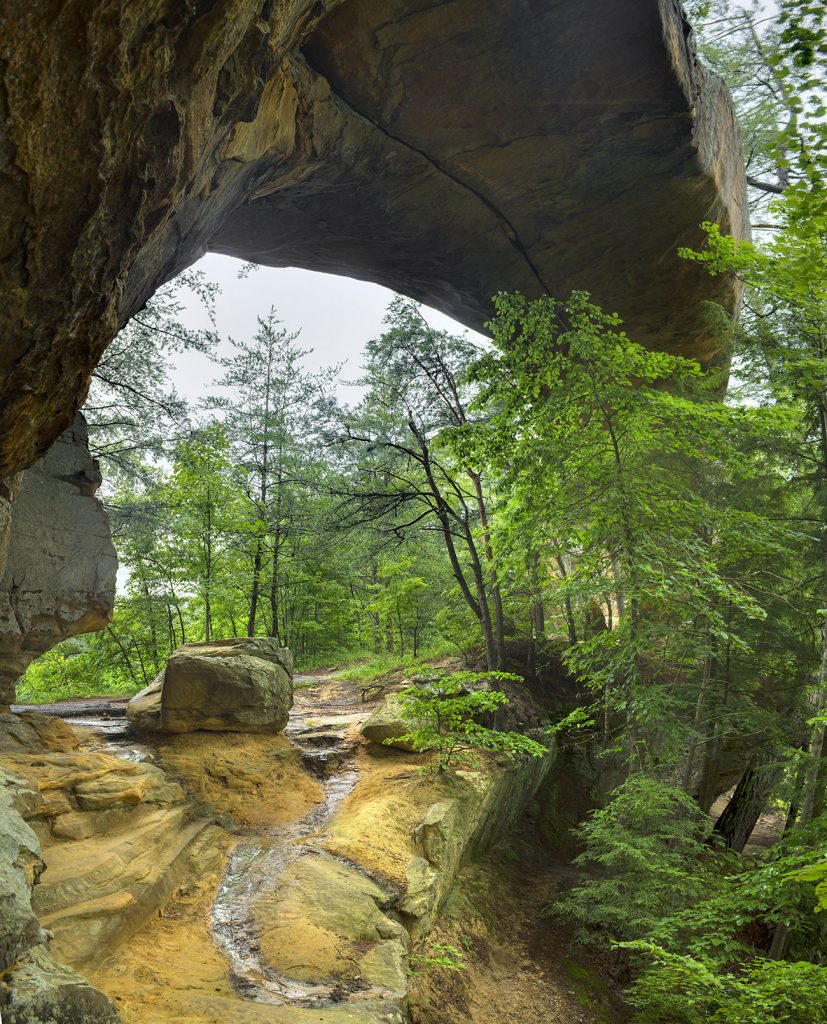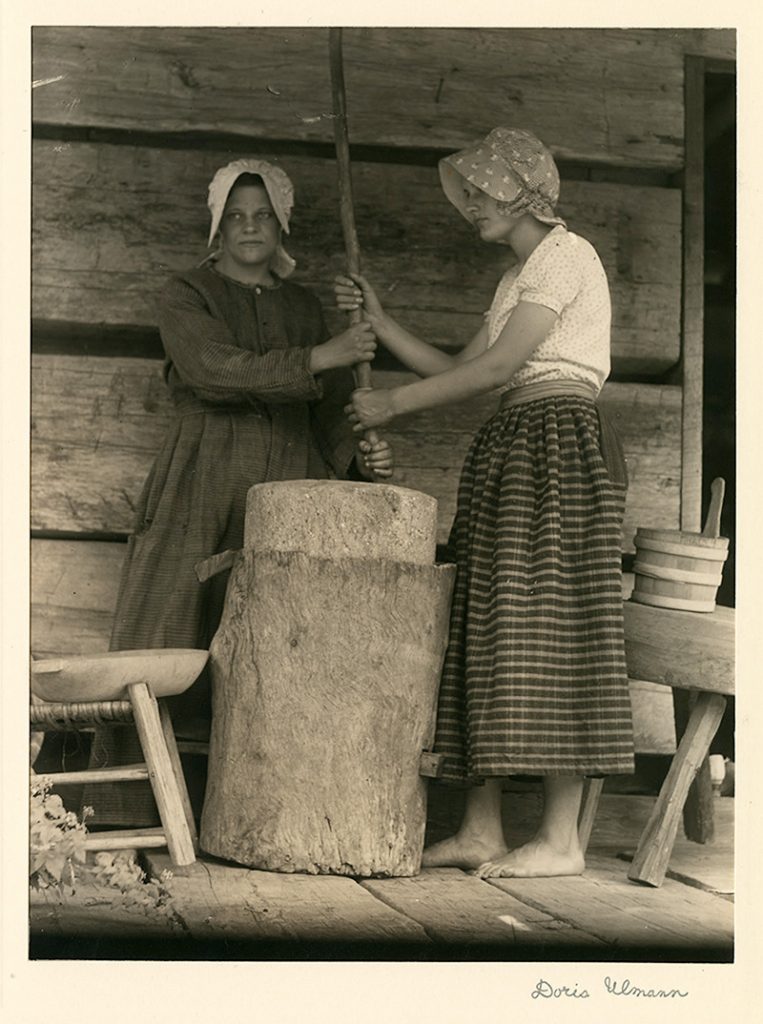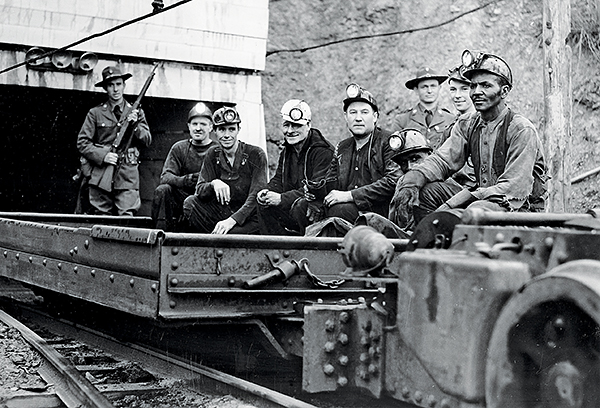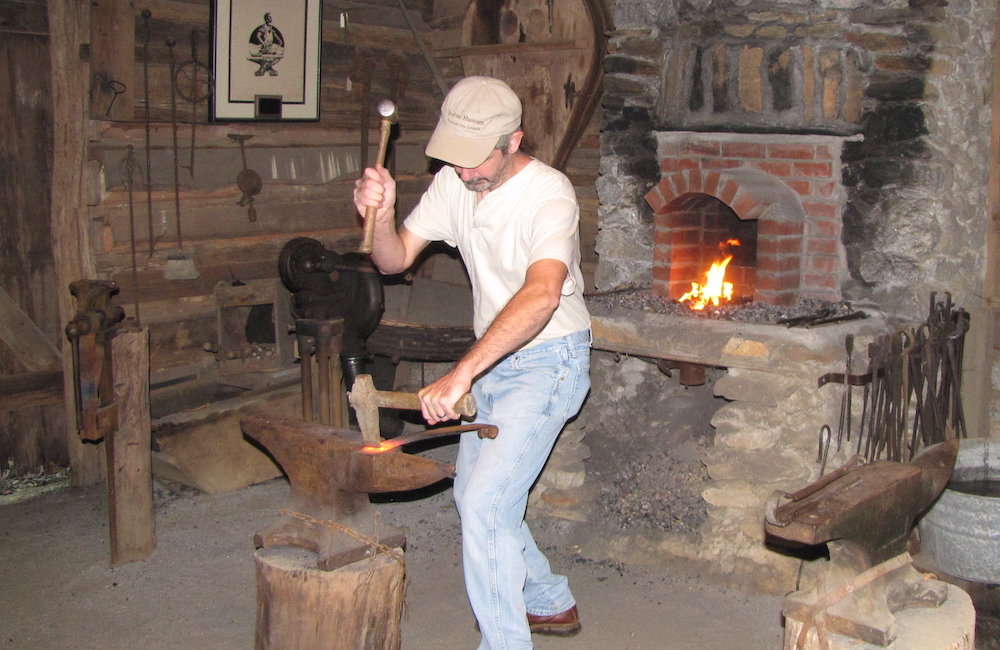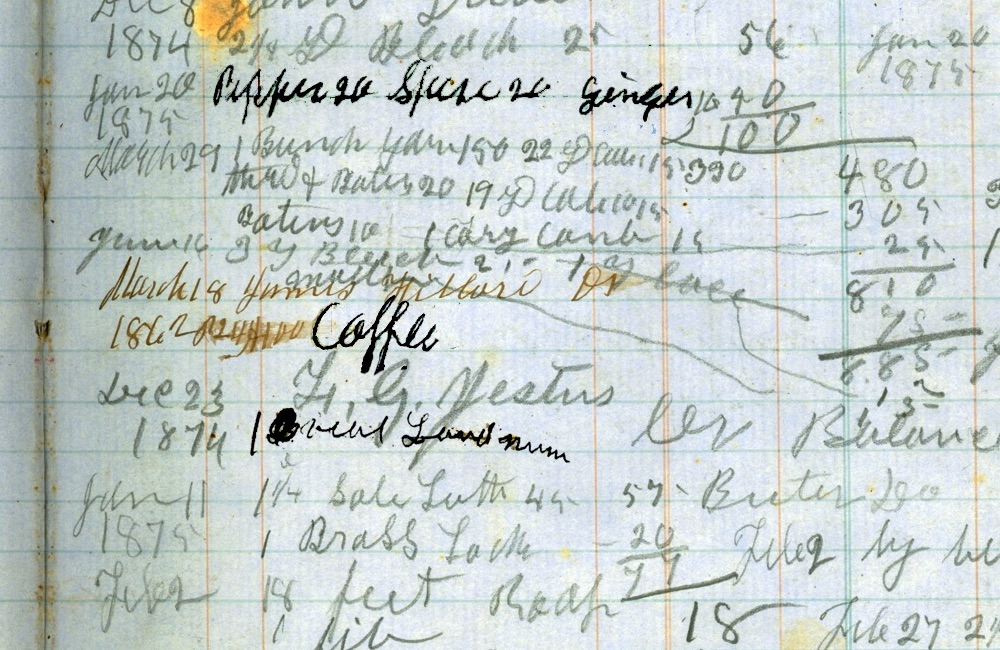Posts Tagged ‘Appalachian history’
The Root that Shaped a Region
Luke Manget, author of the book “Ginseng Diggers: A History of Root and Herb Gathering in Appalachia,” discusses the complex and impactful history of ginseng and root digging.
Read MoreA Journey Through the Daniel Boone National Forest
The Daniel Boone National Forest today is the result of decades of decisions and actions — some controversial — by forest staff, government officials, environmental groups and volunteers.
Read MoreOut of Frame: Regional Stereotypes in Photography
By Lou Murrey Earlier this year, a photo essay published by Vice Magazine titled “Two Days in Appalachia” provoked controversy over the portrayal of the region in the media. The images were made in the photographer Bruce Gilden’s signature style, using a harsh flash and zooming in on his subject to an almost-uncomfortable and unflattering…
Read MoreRenovations Reveal Link to Thomas Jefferson
During recent renovations, a chemistry lab with links to Thomas Jefferson was discovered behind a wall in the University of Virginia’s Rotunda.
Read MoreWhitewashing Reality: Diversity in Appalachia
By Rachel Ellen Simon The United States may be thought of as the good ol’ “Red, White, and Blue,” but in the minds of many, Appalachian America is simply “white, white, white” — racially, that is. The stereotype of Appalachia as a strictly white Anglo-Saxon region has been perpetuated by journalists, novelists, social scientists, and…
Read MoreTouring Coal Country’s Past
By Molly Moore In 1978, student Doug Estepp was poking around in the West Virginia University library when he came across a newspaper headline describing the 1920 Matewan shootout — a violent episode in the dispute between coal companies and pro-union miners. Although Estepp grew up near Matewan in Mingo County, W.Va., it was the…
Read MorePodcasting Appalachian History
By Bill Kovarik Dave Tabler’s education in art history didn’t prepare him to be an Appalachian historian so much as his hope to overcome the way his father “spent a lifetime running away from mean jokes about marrying your cousin and swilling moonshine.” After helping his father with a book, Tabler started the Appalachian History…
Read MoreAppalachia’s Contested History
By Bill Kovarik It has been 50 years since Harry Caudill wrote “Night Comes to the Cumberlands,” a landmark history that rejected stereotypes of Appalachian people as backward hillbillies and described the ruthless exploitation they suffered. The book spoke with eloquence to the American conscience and set off a firestorm of controversy. Within a year,…
Read MoreThe Spirit of Foxfire is Alive in Appalachia
By Peter Boucher In 1966, a high school teacher in Rabun County, Ga., tried a new teaching approach in order to win the attention of his disobedient, disinterested students. He assigned his English class the task of interviewing Appalachian homesteaders about the essential skills, passed down from generation to generation, that enabled them to survive…
Read MoreGlobal Connections
Goods we take for granted today, such as spices, sugar, silk and coffee, were once signs of the early global trade system. This collage of accounts from Valle Crucis, N.C.’s Taylor and Moore Store ledger (1861 to 1874) also includes a line for the opium-based laudanum, a common pain reliever and overall remedy used during…
Read More
